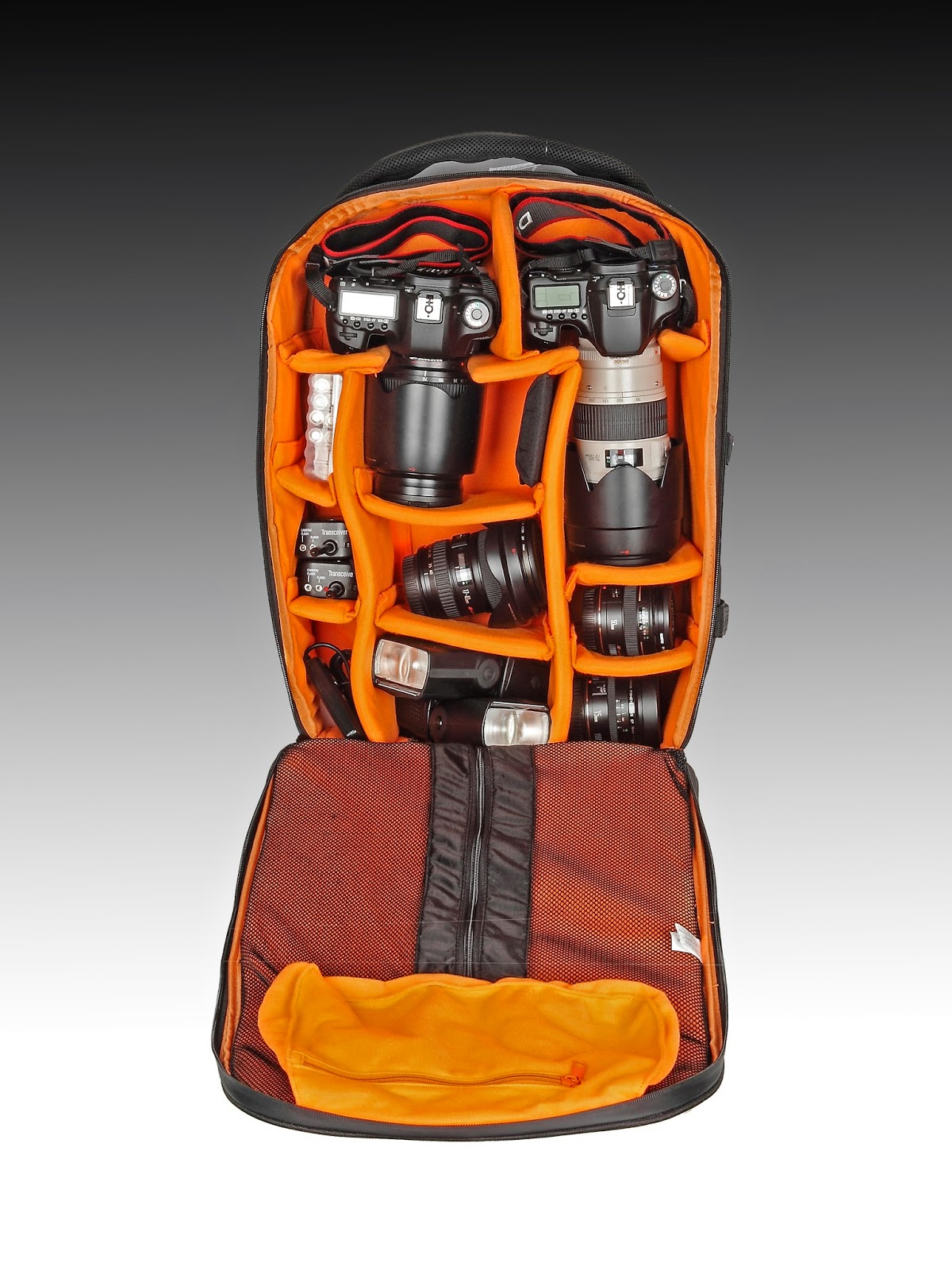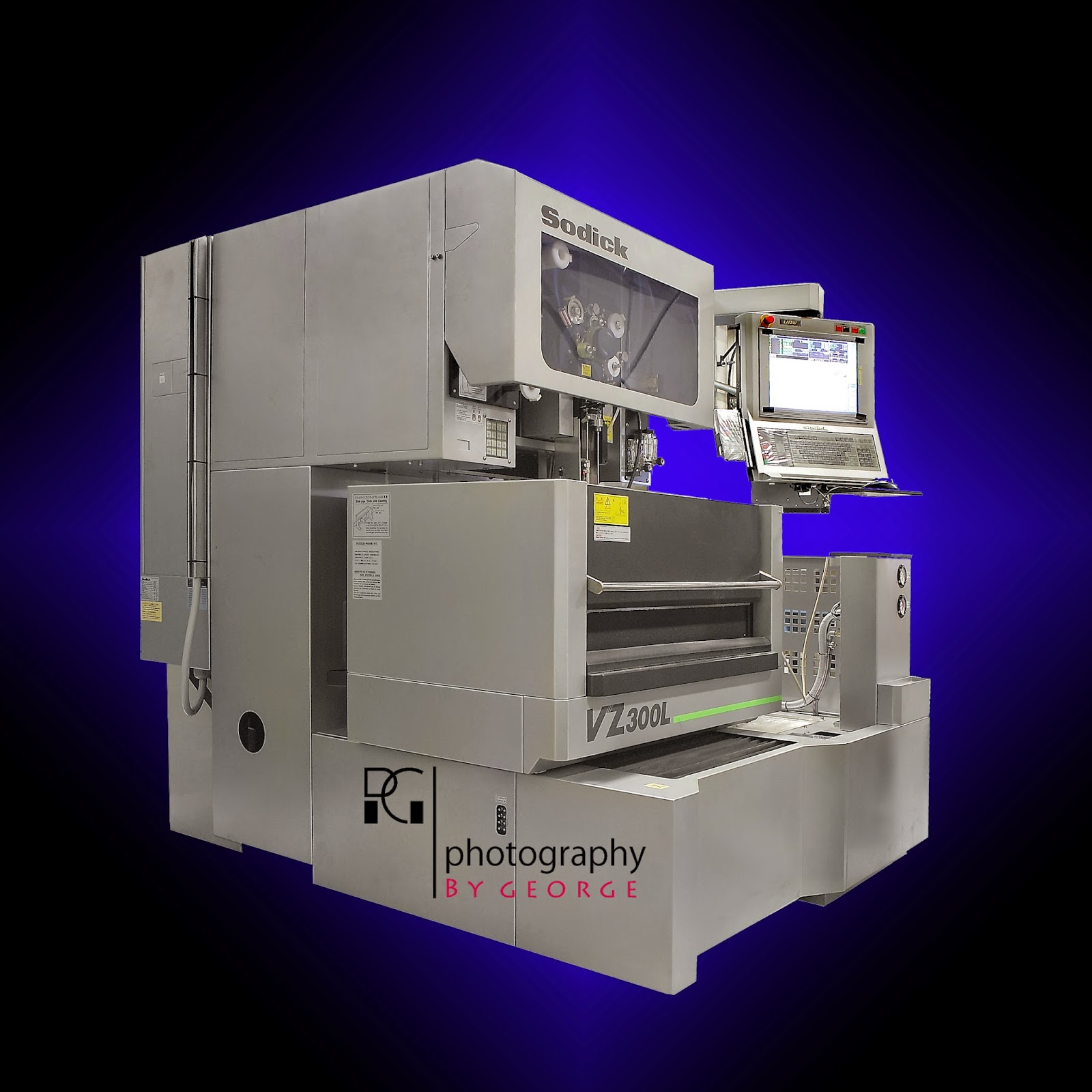When it comes to websites, the phrase “less is more” often becomes the rule of thumb many establishments follow. Fancy scrolling banners, introduction animations, and other flashy extras now are considered unnecessary, since visitors usually don't have the patience for them.
Without these extras, though, how can your website stand out amid competition? Keeping it simple actually doesn't mean you can't add a photograph or two, especially if you're selling something. Item descriptions, after all, aren't the same as having good quality product photography Toronto.
Before you go overboard adding the essential photos to your website, though, here are a few tips to remember.
1. Pick a palette. While choosing a vintage look to the photos is tempting, will the yellow-brown, slightly faded colours fit in with the rest of your website? Or will it stick out like a sore thumb and give visitors a headache?
Full-colour photos are usually the best way to go, with a plain background. That doesn't mean you have to use white (although it's a recommended choice). Less saturated, lighter (i.e. almost white) shades of your company logo's colours are possible alternatives.
2. Hire a professional. If you want high quality photos, you'll need to invest in a photographer. Some companies do the do-it-yourself (DIY) route. But that doesn't mean you should, too, unless you know how to set the scene and have the needed equipment.
While you're at it, make sure you give the photographer all the details they need, particularly for the photo shoot, and be sure to put everything in writing. That way, you're on the same page and there would be less chances of miscommunication.
3. Plan ahead. Having one big photo shoot for multiple products is a good idea, compared to having several separate, smaller ones for each product, since you'll save in the long run. Also, make sure to have extra photos you can use in the future, enough to make your catalogue always look fresh and updated.
Planning ahead includes bringing any props you'll need for the shoot. At the same time, keep props to an absolute minimum, to keep the focus on your products.
You don't actually have to be an advertising photographer Toronto to use these tips well. Simply put yourself in your target audience's shoes and determine what they'd want to see. That way, potential clients are enticed, not put off.
Showing posts with label Toronto Product Photography. Show all posts
Showing posts with label Toronto Product Photography. Show all posts
Sunday, January 11, 2015
Monday, December 15, 2014
3 Essential TRAITS Every Photographer Should Have
Beyond all doubts, we all know that photography is one of today's most admired art. People, whatever the social status could be are easily fascinated by its enchanting realm. Its various purposes along with its tricks and artistic concepts have definitely affected our daily lives.
As a Toronto commercial photographer, I also consider myself as part of the herd of photography fanatics. My undying passion for this art has led me to countless privileges like visiting various places for photography endeavor purposes.
In my recent visit to Europe, I met a photo artist whom I believe is one of the greatest photographers ever existed on the planet! Before I went home, he gave me these 3 tips to become a great photo artist.
1. Infinite Imagination
Perhaps, this one isn't new to you. That's great! However, what you probably don't know is the truth, “Everyone has imagination. Those who excel are the ones who know to use it.”
In your journey to be a great photographer, never be afraid to trust and follow your imagination. Don't let parameters suppress you. If you think your wildest thought is screaming within, unleash it! That's a masterpiece!
2. Creativity! Be Creative!
Think differently. Don't be afraid to experiment and apply new techniques. Ignore the trend and try to change your perspective. However, prepare for the numerous individuals who might criticize your output. Of course, you need them. They're the ones who could identify if you've done something remarkable or not.
Being creative is sometimes a risk. For instance, you're a photographer of a certain advertising firm. Then one occasion, you tried to incorporate new things to your craft. Unfortunately, your superiors didn't like the outcome. Then, you know what happens next.
Remember, art appreciation is subjective. You can't ask a person to like your work. So, if ever someone hates your creations, let it be. It's not the end of the world, right? Just be creative!
3. Undying Perseverance
This will hold everything! Even though you're extremely creative and you have that endless imagination, without the ability to persevere in your endeavor, everything will be useless.
Perseverance is holding on to your goals whatever happens. It's about being patient and dedicated amidst life adversities. If you don't have this attribute, your road to become a successful photographer would be a very dark path.
Ready to become a phenomenal photographer?
As I left the land of Europe, I realized that I have these three attributes. I knew it. Now, I'm ready to be the best advertising photographer Toronto.
Share this article to other aspiring photographers!
As a Toronto commercial photographer, I also consider myself as part of the herd of photography fanatics. My undying passion for this art has led me to countless privileges like visiting various places for photography endeavor purposes.
In my recent visit to Europe, I met a photo artist whom I believe is one of the greatest photographers ever existed on the planet! Before I went home, he gave me these 3 tips to become a great photo artist.
1. Infinite Imagination
Perhaps, this one isn't new to you. That's great! However, what you probably don't know is the truth, “Everyone has imagination. Those who excel are the ones who know to use it.”
In your journey to be a great photographer, never be afraid to trust and follow your imagination. Don't let parameters suppress you. If you think your wildest thought is screaming within, unleash it! That's a masterpiece!
2. Creativity! Be Creative!
Think differently. Don't be afraid to experiment and apply new techniques. Ignore the trend and try to change your perspective. However, prepare for the numerous individuals who might criticize your output. Of course, you need them. They're the ones who could identify if you've done something remarkable or not.
Being creative is sometimes a risk. For instance, you're a photographer of a certain advertising firm. Then one occasion, you tried to incorporate new things to your craft. Unfortunately, your superiors didn't like the outcome. Then, you know what happens next.
Remember, art appreciation is subjective. You can't ask a person to like your work. So, if ever someone hates your creations, let it be. It's not the end of the world, right? Just be creative!
3. Undying Perseverance
This will hold everything! Even though you're extremely creative and you have that endless imagination, without the ability to persevere in your endeavor, everything will be useless.
Perseverance is holding on to your goals whatever happens. It's about being patient and dedicated amidst life adversities. If you don't have this attribute, your road to become a successful photographer would be a very dark path.
Ready to become a phenomenal photographer?
As I left the land of Europe, I realized that I have these three attributes. I knew it. Now, I'm ready to be the best advertising photographer Toronto.
Share this article to other aspiring photographers!
Monday, December 8, 2014
Toronto Product Photography | Learning Photography Basics
Technically, a photographer is a person who takes “shots of images”. The word comes from the combination of the Greek words 'phos' which means 'light' and graphê which means 'drawing or writing.' Together, it means drawing with light.
Amateur Vs. Professional Photography
You may have heard the words 'amateur and 'professional' photography Toronto. So, what's the difference? Basically, amateurs in this particular field are engaged mostly in shooting a wide range of images for the following reasons:
For personal pleasure like in a hobby; and
To record an event, emotion, place, and so on, without monetary motivation.
A professional photographer may also engage in said activities above, but, their practice of profession involves making money. Mainly, they generate profit by displaying, selling or making use of pictures.
Secondly, there are times when an amateur photographer gets considerable sums like when he emerges the winner in some art or photography competition, and gets the prize money. On the other hand, an individual can be considered professional by his academic study in pursuit of his photographic skills.
However, there are no hard and fast rules in photography, whether you're doing it professionally or amateurishly, or making money out of it or not. Because, anyone can really enjoy it as a hobby and at the same time, generate profits if he wishes. So, if you're interested to turn your creative talent into a money-making venture, professional photography is an excellent career choice.
Professional Photography As A Career
It doesn't require a college degree, even age. As long as you have a good eye, the right camera and other basic tools, and with basic knowledge, you can find fulfillment in this endeavor. As this field is highly competitive, the best thing to do is to start small. Sharpen your skills and eventually build a portfolio of your best shots.
Another is to educate yourself to become a Toronto commercial photographer by reading books, magazines, and online resources about the latest tricks and tips. Here, you'll be learning about the new ways of using the cam and lenses that enables you to come up with fantastic results.
Amateur Vs. Professional Photography
You may have heard the words 'amateur and 'professional' photography Toronto. So, what's the difference? Basically, amateurs in this particular field are engaged mostly in shooting a wide range of images for the following reasons:
For personal pleasure like in a hobby; and
To record an event, emotion, place, and so on, without monetary motivation.
A professional photographer may also engage in said activities above, but, their practice of profession involves making money. Mainly, they generate profit by displaying, selling or making use of pictures.
Secondly, there are times when an amateur photographer gets considerable sums like when he emerges the winner in some art or photography competition, and gets the prize money. On the other hand, an individual can be considered professional by his academic study in pursuit of his photographic skills.
However, there are no hard and fast rules in photography, whether you're doing it professionally or amateurishly, or making money out of it or not. Because, anyone can really enjoy it as a hobby and at the same time, generate profits if he wishes. So, if you're interested to turn your creative talent into a money-making venture, professional photography is an excellent career choice.
Professional Photography As A Career
It doesn't require a college degree, even age. As long as you have a good eye, the right camera and other basic tools, and with basic knowledge, you can find fulfillment in this endeavor. As this field is highly competitive, the best thing to do is to start small. Sharpen your skills and eventually build a portfolio of your best shots.
Another is to educate yourself to become a Toronto commercial photographer by reading books, magazines, and online resources about the latest tricks and tips. Here, you'll be learning about the new ways of using the cam and lenses that enables you to come up with fantastic results.
Wednesday, October 29, 2014
The Difference Between Advertising Photography And Commercial Photography
A commercial photographer can be an advertising photographer and an advertising photographer can be a commercial photographer, but they are not synonymous. And as nonsensical as this sounds, it's true. They can be both, they can be either or, but they cannot be interchanged.
Generally speaking, commercial photography is a specialized branch of advertising photography, while advertising covers a broader range of product promotion. Most photographers take the difference very seriously. If you were to ask a Toronto commercial photographer for advertising photography, he might end up referring you to someone else.
Or he'd be insulted.
To avoid blunders like this, allow me to break down the difference.

COMMERCIAL PHOTOGRAPHY – IT'S ALL ABOUT THE PRODUCT
This subheading summarized commercial photography perfectly. Commercial photographers take pictures of buildings, models, merchandise, artifacts, and the like, usually with promotional intentions.
However, with commercial photography, it is all about the product. The entire photo shoot is devoted to the merchandise being captured. The lighting, styling, background, and editing are all arranged in a way to really make the product stand out.
ADVERTISING PHOTOGRAPHY – IT'S ALL ABOUT PROMOTION

Commercial photography falls under advertising photography, mainly because it uses a narrower array of techniques than those in advertising. In advertising photography, the product is still emphasized (since that's what has to be sold). However, the advertising photographer also has to sell concepts, ideas, and lifestyles.
To put it in simpler terms, the advertising photographer has creative freedom to interpret and decide how certain merchandise, people, and services can be sold. While commercial photographers find new ways to make a product stand out, advertising photographers find ways to integrate that product in an average person's lifestyle. He has to find ways to make the product sell.
As of 2011, an estimated 80% of all advertising campaigns use pictures. The advertising industry itself may be dying out (according to some), but it looks like the need for quality pictures and photographs are higher than ever. This digital age relies heavily on imagery. So the next time you're looking for an advertising photographer Toronto has several excellent ones. Don't just go to your neighborhood commercial photographer and assume he/she can do it.
Tuesday, August 12, 2014
A Great Photographer? 5 Remarkable Traits You Should Possess | Toronto Product Photography
The
incomparable realm of photography has truly evolved. Obviously, more
and more individuals are now stepping into the zone of the said art.
Of course, I'm one of them! And like you, I also want to be GREAT!
Luckily
for me, one of my colleagues is now a professional Toronto commercial photographer.
What's the good news? Of course, I've learned a lot from him! In
fact, because of him – I discovered the 5 traits.
1. Patience and Determination
“TIME”
could be your most competitive opponent in your “photography
journey to greatness.” It could deceive your path. It could slow
you down. And it could possibly lead you to nowhere or emptiness.
Have
you ever thought why some people never succeeded in obtaining their
goals in life? Although, there could be countless factors, it's still
undeniable that one of those reasons is “Time.” To be more
specific, it's lack of time!
So,
how can you solve it? Simple -- uphold your PATIENCE and never ever
lose your DETERMINATION. Keep pushing! Keep going!
2.
Insurmountable
Curiosity
Remember,
great photographers become great because of their peculiar ability to
notice objects others are oblivious to. Indeed, they question,
investigate, and embrace almost everything on the planet! That sets
them apart from ordinary artists.
3.
Don't
Forget Imagination and Creativity
Your
imagination can push you into thinking which you haven't thought of
before. For instance, you imagine an image in your head, then you try
your best to concretize it. So, how can you make it happen?
This
is when your creativity comes in! This is when you find your own way
or back-channel in bursting out that picture!
With
your imagination and creativity, original and unique brands of
pictures come in. Thus, developing your own flavor and style of
shooting photos.
Imagining
something right now? Grab your camera!
4.
Technical
Artistry
You
need modernized tools and apparatuses to be able to compete the
contemporary arena of photography. Even how great you are in handling
your toys (camera), losing to uphold the quality, means losing the
grip to become great!
5.
Undeniable
Passion
Do
you have any idea why you still keep striving to become a remarkable
photographer? Do you know what fuels your core to pursue your dreams?
It's not money!
It's
PASSION – it sparks your inner landscape to never give up. You need
this to keep you moving!
Finale
If
you have your own tips on how to become a great photographer, that's
great! Everything will now become perfect to you. Good luck fella!
Thursday, July 10, 2014
Product Photography Toronto | Have Hobby, Will Earn Money
Having
a hobby is a great way to spend time. It's also a great way to earn
money. Successful businesses often hinge on the passion of the
person. Gardening enthusiasts make a living as landscape architects
and floral designers. Animal lovers put up pet daycares or become
animal groomers for some additional cash. No matter how you look at
it, extra-curriculars can easily be translated into lucrative
money-makers.
“Starving
artists” don't necessarily have to starve. Whether you're a painter
or a Toronto commercial photographer, there always has been a
big demand for people who can design company logos, make web
graphics, take photographs, and so on. Thanks to the boom in
successful superhero movies, the comics industry is constantly on the
look-out for talented pencilers and inkers. Writers looking to earn
some good cash can opt to submit music and movie reviews to websites.
For
the “shop 'til you drop” kind of women, how great would it be to
spend someone else's money instead
of your own and earn a
little extra on the side? Many wealthy women and busy men are into
the habit of hiring personal shoppers. From picking out the perfect
dress for some fancy dinner party to grabbing groceries because the
client's stuck in all-day meetings, personal shoppers are paid very
well for their taste, their time, and their worn-out feet.
For
the hopeless perfectionist, why not spread your gift of
color-coordination and impeccable organization with people who just
can't seem to get their lives in order? For a price, of course.
Personal secretaries are often paid by the hour just to keep track of
their client's appointments and meetings for the month. Event
organizers are in high demand, especially for those special functions
that just cannot be
messed up (think debuts, reunions, sweet sixteens, etc.,). If you've
got the mind for names, dates, numbers, prices, and places, then you
should seriously consider getting paid for it.
Whatever
you enjoy doing in your spare time, turning it into a business may
be
your ticket to financial freedom and success. Open a bakeshop and
sell those lovely creations from your oven. Start an online store for
all those extra clothes and books that you keep buying. Start a
Toronto product photography service
and get paid for snapping shots. Make your passion your profession,
and you'll never have to work a day in your life.
Wednesday, July 2, 2014
Contrasts In Commercial Photographs
What's
the best way to make something stand out? Contrast! A black object on
a white background is simple, clean, and effective. Similarly, a
light object on a dark background calls attention to itself. Contrast
in photography refers to both tonal and color contrasts. It's the
range of shades, from bright highlight to dark shadow. The more
extreme the range, the higher the contrast.
A
professional Toronto commercial photographer knows how to use
make use of contrast creatively and effectively. Here are a couple of
examples of contrasts in commercial photographs.


Notice how the white background and the metal gray borders really
bring out the dark blue color of the conveyer belt. The lines and
edges are very crisp against the white background. The shadows on
this piece aren't very extreme. This is a good example of moderate
contrast.
Morever, the lack of shadows actually balances out the photograph. We
are initially drawn to the dark blue color, but then our eyes move on
to the rest of picture. None of the other details are overshadowed,
making the machine itself – and not a particular component – the
subject of the photograph.
This is another example of contrasting shades. Dark, rich wood
against a completely plain background. The lack of anything
distracting behind the piece of furniture brings out all the little
details; black painted circle in the middle, black-and-red flower
borders, and the metallic-gold carvings on the edges and corners.
The shadows and angle give the subject dimension, but it's not
over-emphasized. Notice how there are no shadows under or around the
object itself. Editing the shadows out gives the piece a very clean,
centralized feel. When you want a stand-alone object to really
capture the viewer's attention, this is the way to do it.


What do you do when there are multiple subjects in the photograph and
all are varying shades and colors? Centralize! Object placement is
crucial here; find a way to group all the objects together without
them looking cramped or forced.
Pick a defining characteristic that all the subjects share, and use
that to create the contrast you need.
In this case, the defining
characteristic would have to be the plate. Since all the objects in
the photograph are being supported by the plate, you'll want the
plate to stand out a little more. White against black equals
beautiful contrast. Your eyes automatically ignore the black
background in favor of the food that stands out beautifully against
the white plate.
This photo of a cosmetic product
makes use of contrast between elements. By itself, on a plain white
background, the jar of mineralized powder would have looked very
clean, yes, but a bit too simplistic
to really catch attention. The colors alone are very basic; black
cover, light pink glass, white background.
The literal splash of
color adds excitement to what could have been an otherwise very
proper, very silent set-up. Colors and shades aren't the only things
you can contrast in a picture. Elements like a rush of activity in
the background against a subject standing still, or a very small
object propped up against a huge building are examples of good
contrast.
This is another example of contrasting elements. Just like the photo
above, this contrasts chaos versus quiet. A blur of activity versus
focus.
Imagine if the background and subject were the same. If the van was
blurred as well, you wouldn't have anything to focus on. You'd be
left looking at a pretty bad picture. If the background and the van
were both still, there wouldn't be a sense of movement. You'd think
the van was parked.
Many toronto product photography services
have professional photographers who understand this concept very
well. When you use proper contrast with proper angling, lighting, and
exposure, the results are nothing short of breath-taking.
Sunday, June 29, 2014
Toronto Commercial Photographer | It's All About The Angles
Let's
face it -- straight-on, full-frontal shots are boring. They're good
for self-portraits and passport photos. But if you're trying to catch
someone's attention, shots like this fall flat. Imagine a picture of
a plate of food taken at eye-level. No rotation, no slight angling,
no special way for the light to catch the edge of the plate just so …
nothing.
One
of the best ways to capture an eye-catching photograph is to
experiment with the angles. Any professional Toronto commercial photographer knows that interesting angles are the foundation of
interesting pictures. Anything crazier than interesting, though, and
you risk the photo looking ridiculous. Balance is key.
The color of the background and the video camera are both gray. The
only thing different is the shade and color gradation, and yet the
camera stands out beautifully.
This is because the slight tilt and rotation of the camera allows the
viewer to see the details of the front and the side at the
same time. The angle here not only looks artisitc; it gives the
object dimension.
COSMETICS
This is an example of how angling the shot can really bring out the
contrasting colors. While you're finding the right angle, remember
that object placement is also very important, especially when there's
more than one in the photograph.
By placing the black box at the back, the light-colored foundation
bottles at the front stand out even more. If the box had been in
front, their black-colored caps would be emphasized. Then the cream
colors would have been covered, and the whole picture would just be
one big splash of black on white.
The angle here is a slight bird's-eye-view; we're made to look at the
set-up as though we're at a higher level, looking down. Again, this
emphasizes more details, like how many foundation bottles there are.
If the angle had been a simple straight-on shot, the contrast between
white, black, and brown wouldn't have been as dramatic.
FOOD
The main problem when taking a single subject on a plain background is space. You don't want there to be too much space around the subject, so you come in closer. But you don't want there to be a lack of space either, or else the picture risks looking abruptly cut off.
Again, balance is key. The angle here cuts off a little of the plate,
but it focuses on the truly eye-catching (and, quite frankly,
mouth-watering) details of the food, such as the yellow of the eggs
and the oily goodness of the bacon.
FURNITURE
You can use angles to accentuate and emphasize certain features of
the subject. Composing makes use of the lines and light sources on
the photograph to draw attention to certain characteristics of an
object.
In this example, the eye is immediately drawn to the gold sculpting
on the corner edge of the furniture. The angle makes the piece feel
solid. Thanks to the position of the shadows, we can tell that the
corner with the gold sculpture is at the very front.
The break in the lines of the wood also further accent the corner.
When uniformity is disrupted, our attention is immediately drawn to
whatever looks different.
INDUSTRIAL
You can dramatically alter your photo composition just by changing
the angle of the camera. It doesn't even have to be drastic
adjustments. Simply rotating the subject brings out fantastic
results.
All experts in product photography Toronto understand the
importance of giving the subject dimension. Just like the video
camera in the first picture, the picture gives you a sense of the
bulk, the weight, and the width of the machine. And all it took was a
little angling.
Tuesday, June 10, 2014
3 Tips For The Best Corporate Portrait Results
Do you have what it takes to become a professional photographer? If you are into it, can you say that you're now skilled to shoot corporate portraits?
Nevertheless, you may be surprised to know that everything is different in this type of digital imagery -- from the atmosphere to lighting, to the gear you use. A portable lighting equipment that you can assemble and disassemble in minutes is the preferred type.
There are also different kinds of corporate portrait photography. This article focuses on the type done indoors. Here are tips for getting the best possible results spending less on gear and lighting equipment:
1. Client relationship
Establish a good relationship with your client by meeting them face to face. Imagine yourself interviewed and you'll only be hired as a Toronto commercial photographer if the firm is convinced of your skills, credentials, and perhaps your personality. Prepare your professional portfolio showing your excellent works. Once hired, aim to build a lasting relationship and they'll keep coming back for your services.
2. Client needs
Often times, companies know exactly what they need whenever they need the services of a photographer. For some, there are those who don't have any idea at all. They only think of having a photo shoot of their employees, period. Take the initiative of knowing what they really need during your first meeting. Show them your work samples. You might be able to squeeze out some ideas without them conscious of it. From that, you can start to write down your specific objectives for that particular job.
3. Use a quote
Give them one that's based on their needs. Once done, determine the number of hours, the cost of labour and equipment you'll be needing for the shoot. Give them the details and do not hold back any info relevant for your shoot. In other words, give them an accurate quote.
Of course, you have to tell them that before anything is perfected, you prefer to have everything documented in a written contract. This is not only for your protection but of their's as well. Hence, professional photography Toronto is just like any other career, where workers need to be protected.
Subscribe to:
Posts (Atom)



























